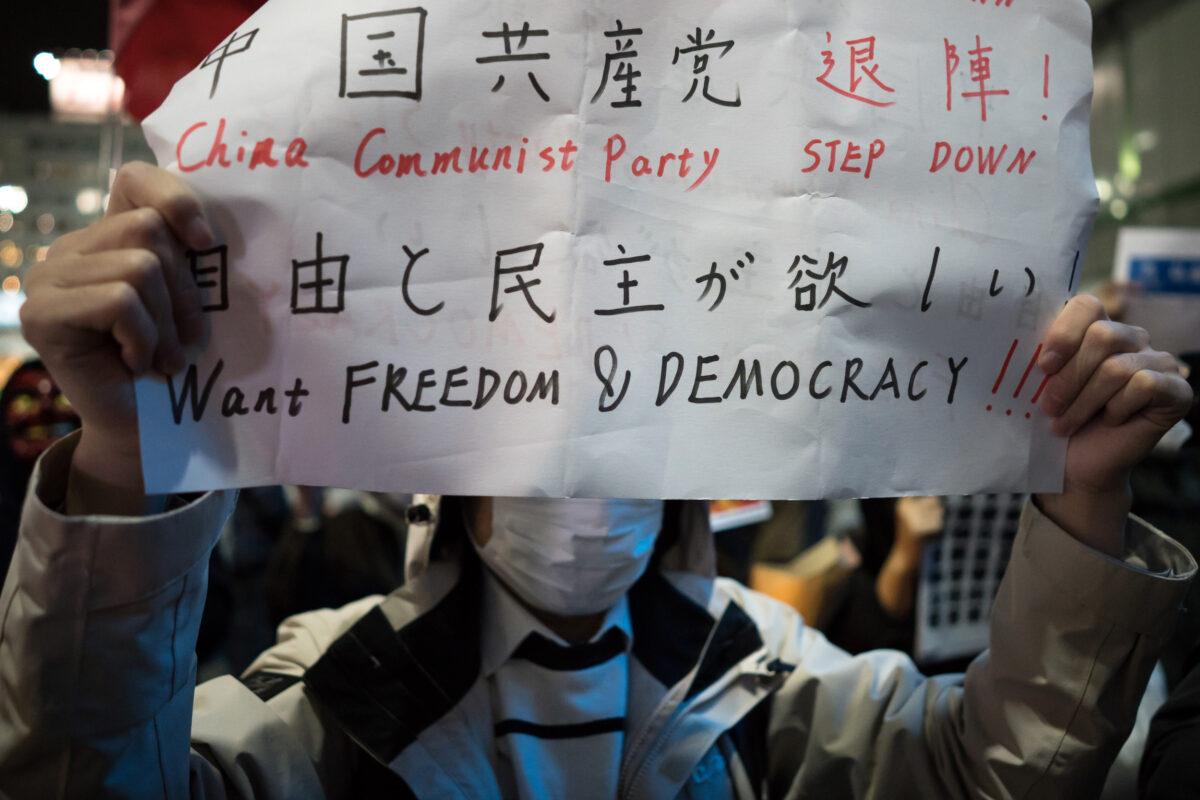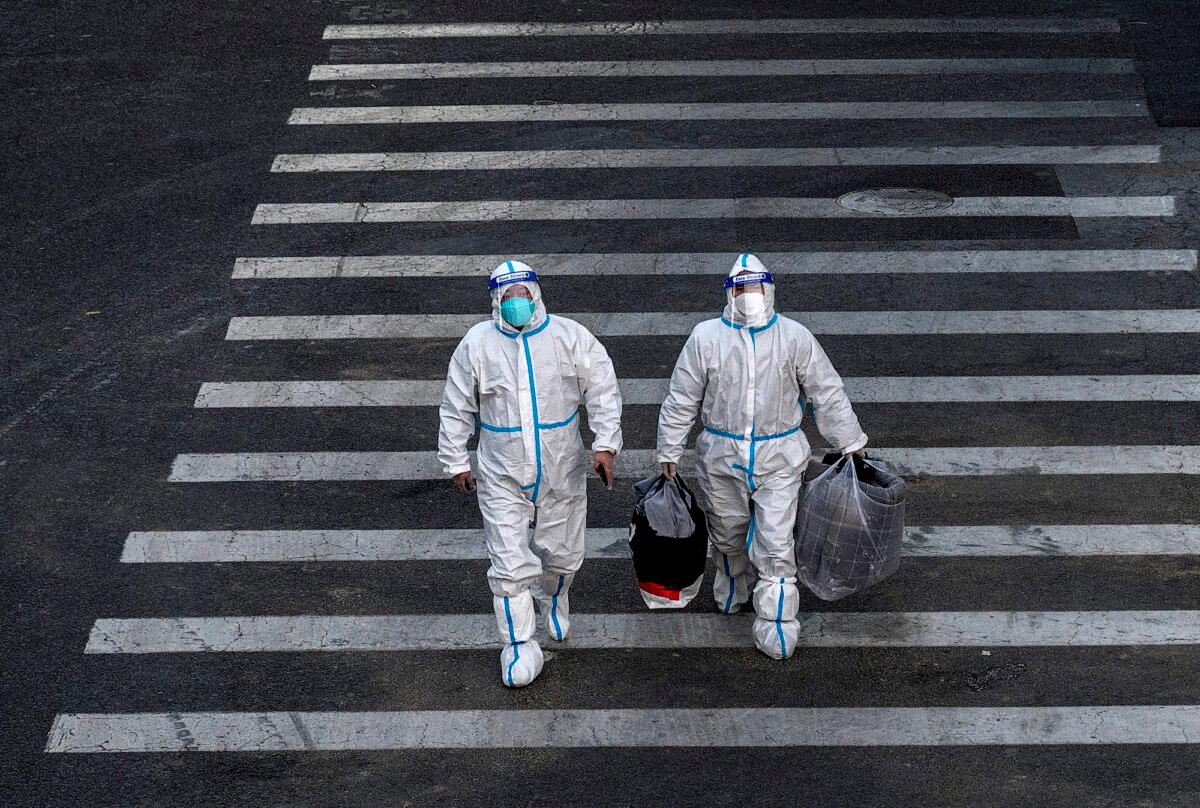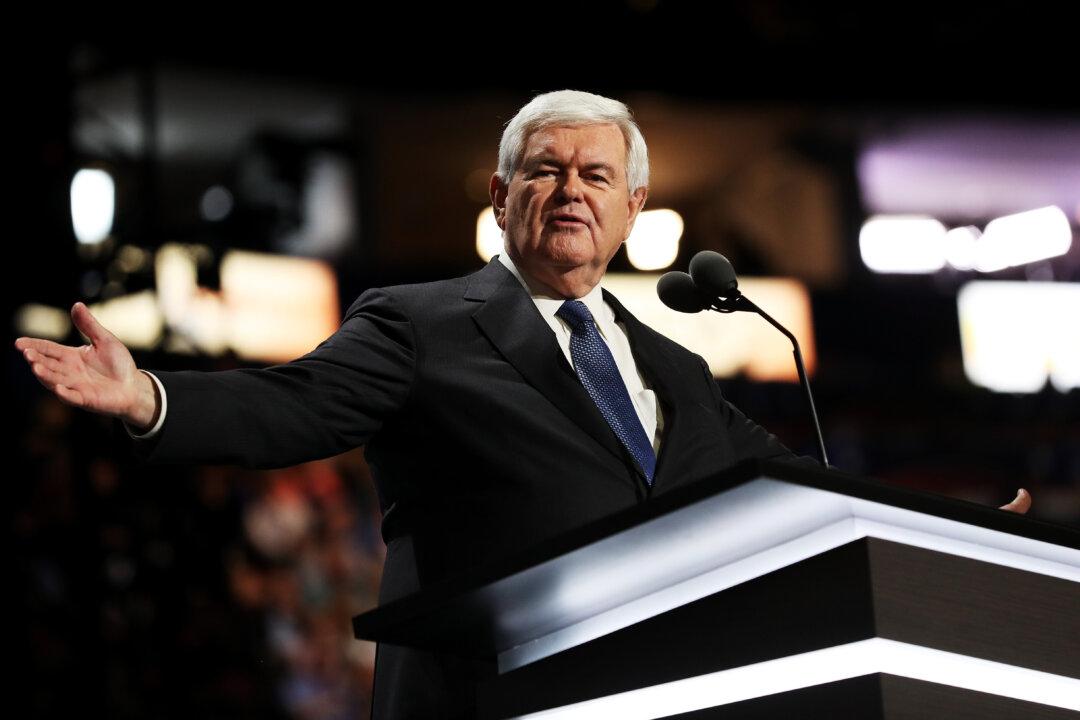For their deliberate policies of repression and violence, Gingrich believes China’s leaders have a lot to answer for.
Since the CCP’s founding in the 1920s, “every single leader of that Party has been a totalitarian dictator,” Gingrich, an Epoch Times contributor, said in an interview.
“None of them have been moderates. None of them have been nice, pleasant people in the sense that we think, and all of them have been prepared to kill people. That’s what it took to stay in power.”
Human rights advocates describe Jiang as the architect of one of the largest anti-faith campaigns in modern history, in launching the persecution of Falun Gong, a spiritual group consisting of meditative exercises and moral teachings centered on truthfulness, compassion, and tolerance.
Perceiving the practice’s surging popularity as a threat to his rule, Jiang ordered an all-out suppression campaign in 1999, subjecting adherents to a range of abuses including torture, harsh labor, imprisonment, and forced organ harvesting.
Gingrich, who as House speaker had hosted Jiang in Washington in 1997, considered Jiang a “very good defender of the Chinese communist government.”
But the Party’s nature reveals itself when it comes to any perceived challenge to its rule.
“Clearly, the dictatorship reached the conclusion that Falun Gong was a mortal threat because it represented an alternative center of legitimacy,” Gingrich said.
“From their perspective, to believe in anything other than the state is a threat to the very survival of the state,” he said, pointing to how other faith groups such as Christians and Tibetan Buddhists have also been persecuted for that reason.
Rising Discontent
Jiang’s death occurs at a particularly sensitive time, as the regime faces widespread dissatisfaction from the Chinese public, who have had enough of the regime’s draconian COVID-19 policies.The recent anti-lockdown protests in China have evoked more than a faint echo of that period.
“I think that is a significant shift.”

Their calls are hardly a surprise given the persistently weak economy and the “repressive” COVID rules, Gingrich said.
The unwritten contract the Chinese people have with the CCP has been that “as long as the economy works, we’ll tolerate the dictatorship,” he said.
“Now, the economy is not working.”
Gingrich is cautious about how far the Chinese protesters can keep up the momentum, not the least because the regime has the world’s largest surveillance system at its disposal to snuff out any perceived threats.
Soviet and Chinese communist leaders each have a track record of mass killing. November marks the anniversary of the “Holodomor” famine, which then-Soviet head Joseph Stalin engineered in the 1930s, causing millions of Ukrainians to starve to death.
In China, Mao Zedong, the regime’s first leader, presided over the Great Leap Forward economic campaign to industrialize China, which led to a three-year famine from 1959 to 1962 that some historians estimate to have resulted in 30 million deaths.
Weakened Regime
Even if these protests don’t lead to political change, the sign of weakness from Beijing is hard to miss.Zhao flipped through notes for about a minute before responding that the reporter’s description of the situation “does not reflect what actually happened.” His answer wasn’t included in the official published transcript.
That was a sign to Gingrich of how “shaken” a lot of senior Chinese officials are by the scale of and the spontaneity of the demonstrations, which were sparked by deaths in a Xinjiang apartment fire that many at least partly attributed to COVID curbs that are some of the world’s toughest.
“Even with all of their efforts and propaganda, and all their efforts at controlling communication, they have not been able to contain it,” he said, referring to the protests.

The widespread discontent, coupled with China’s struggling economy, poses a huge challenge for CCP leader Xi Jinping, who just secured an unprecedented third term in office in October, and could rapidly erode his authority.
Chinese officials appear to have begun softening their COVID messaging. Sun Chunlan, the vice premier, said this week that the country is facing “new situations” with the weakening of the Omicron variant and the widespread vaccination. Multiple cities also relaxed some of the virus restrictions after the protests.
“The degree to which everybody who’s currently protesting is at risk of having the dictatorship arrest them, and disappearance is enormous, and it tells you the courage and also the desperation” of the protestors, Gingrich said.
He says he’s disappointed to see a lack of active U.S. support for the protesters and condemnation of Beijing’s repression of them.
Washington has a more aggressive role to play, Gingrich says, whether on the issue of the regime’s persecution of Falun Gong or its COVID restrictions. It should borrow tools deployed during the Cold War, including sanctioning of officials, to apply pressure, he said.
“If you believe in human rights, and you believe in the legitimacy of people governing themselves and speaking out and having the right of free speech, there’s a lot to hold the Chinese communist dictatorship accountable for, and there’s a lot to hold their leaders accountable for.”





